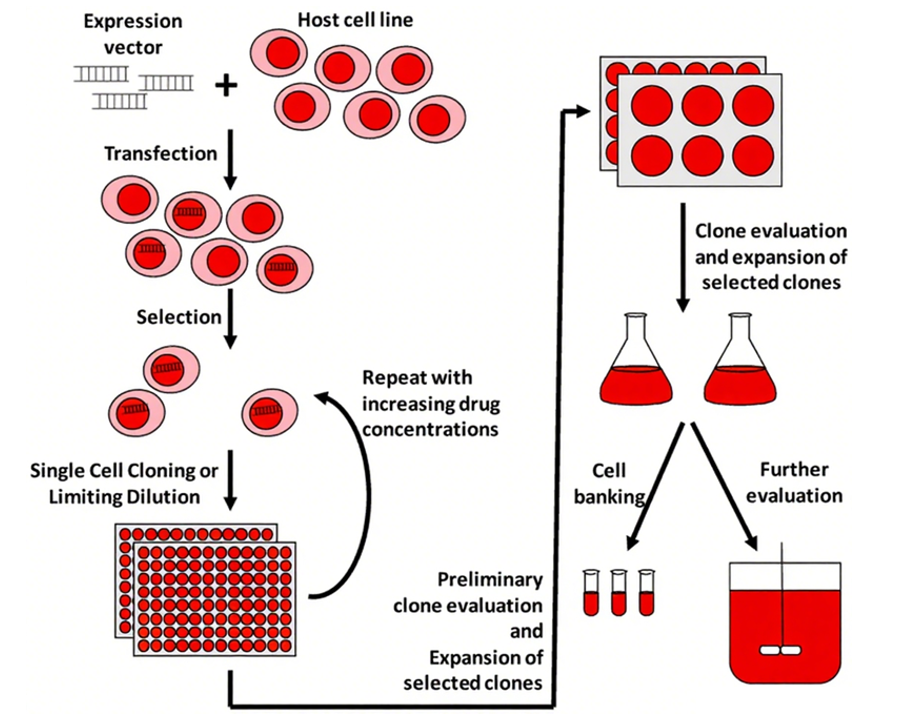
Challenges and Considerations
High Cost
The maintenance of mammalian cell cultures is expensive due to the complex media requirements and stringent culture conditions. This high cost can be a significant barrier to their widespread use, particularly in resource-limited settings.
Low Protein Yield
Compared to bacterial systems, mammalian systems typically yield lower amounts of recombinant protein. This low yield can increase production costs and limit the scalability of protein production.
Technical Complexity
The setup and optimization of mammalian cell cultures require specialized expertise and infrastructure. The complex bioprocesses involved in maintaining mammalian cell cultures demand skilled personnel and advanced facilities.
Conclusion
Mammalian cell expression systems hold great promise for the future of therapeutic protein production. Their unique ability to generate proteins with human-like post-translational modifications (PTMs) makes them indispensable for developing complex biopharmaceuticals. Ongoing research focuses on enhancing protein yield and reducing production costs through advanced genetic engineering and bioprocess optimization. This will likely expand their applications in personalized medicine and gene therapy, where precise protein modifications are critical. Additionally, advancements in synthetic biology and systems biology approaches are expected to further refine the control and efficiency of protein expression in mammalian systems, potentially revolutionizing the biopharmaceutical landscape.
References
1. Gray, D. Overview of Protein Expression by Mammalian Cells. Current Protocols in Protein Science, 1997,10(1), 591-5918.
2. Wendy Fitzgerald,Jean‐Charles Grivel. A universal nanoparticle cell secretion capture assay[J].Cytometry.2012(2)
3. Malm, M., Kuo, C.. Harnessing secretory pathway differences between HEK293 and CHO to rescue production of difficult to express proteins. Metabolic Engineering,2022, 72, 171-187.
4. Steven C.L.Ho,Esther Y.C.Koh. Control of IgG LC:HC ratio in stably transfected CHO cells and study of the impact on expression,aggregation,glycosylation and conformational stability.Journal of Biotechnology.2013(3-4)
5. Ju Hyun Park,Zesong Wang. Enhancement of recombinant human EPO production and glycosylation in serum-free suspension culture of CHO cells through expression and supplementation of 30Kc19.Applied Microbiology and Biotechnology.2012(3)
6. Kyoung Ho Lee,Masayoshi Onitsuka.Rapid construction of transgene-amplified CHO cell lines by cell cycle checkpoint engineering[J].Applied Microbiology and Biotechnology.2013(13)
7. Haldankar, R., Li, D., Saremi, Z. et al. Serum-free suspensin large-scale transient transfection of CHO cells in WAVE bioreactors. Mol Biotechnol 34, 191–199 (2006).
8. Khan, K. H. Gene Expression in Mammalian Cells and its Applications. Advanced Pharmaceutical Bulletin, 2013,3(2), 257-263.
 | Dylan Z Dylan Z is a protein & antibody expert at EnkiLife, proficient in protein expression systems and antibody preparation techniques. He strives for excellence in technology and is committed to developing stable and user-friendly products for users. |
